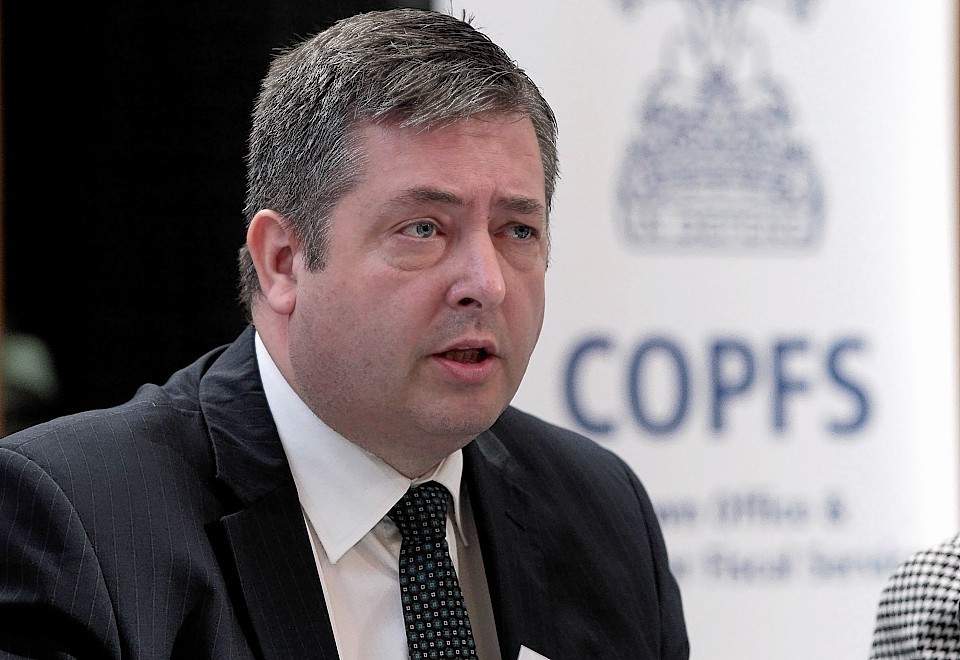Scotland’s top prosecutor has backed a call by the country’s most senior judge to shake up the court system following a horrific sex abuse case in the Highlands.
In February, former nursery manager Mark MacLennan was jailed for eight years after being found guilty of raping a three-year-old boy and sexually abusing a girl.
He launched an appeal against his conviction, and claimed the legal process had been “inherently unfair” because of the “unjustified delay” in being able to cross-examine the witnesses in the case.
But although his case was this week thrown out, Scotland’s top judge Lord Carloway has suggested changes to the way children give evidence in court should be considered.
The judge – who presided over the appeal before being appointed Lord President this month – has backed a move to a Scandinavian model that cold see the end of children being questioned in court.
Under the proposals, people accused of a crime could instead be able to challenge the claims much earlier – even during the investigation stage.
And last night Lord Advocate Frank Mulholland backed the call, pledging to raise the issue with Justice Secretary Michael Matheson.
MacLennan was jailed at the High Court in Edinburgh earlier this year for crimes described as being “of a particularly vile nature”.
In his recent appeal, MacLennan argued that since more than a year had passed between the complaints against him being made and his defence agents being able to question the children, their memory could not be relied on.
His defence team claimed the cross-examination had been “futile” because their memories had been “severely affected by the passage of time”.
In his newly-published ruling, Lord Carloway rejected the appeal, saying that MacLennan had “full opportunity to cross-examine” the children.
However, he added there was an “obvious concern about the delay which took place”, and suggested two changes to be considered in future.
The first, using existing procedures, would speed-up the process by enabling evidence from young children to be taken on commission at any time after the accused’s first court appearance on petition, rather than having to wait for the full charges to be drawn up in an indictment.
Lord Carloway said it “may be a matter which the government might consider in the relatively short term”.
The second idea would “move away from the traditional approach and adopt one more akin to the Scandinavian model”.
This would enable the agents of the person being accused of a crime being involved in the process at a much earlier stage – “very soon after, or even at” the investigation interviews.
Lord Carloway said: “This may be seen as a more radical step, but it may be the most appropriate in the modern era.
“Such a move would herald an end to seeing young children being questioned in a court or commission setting with the legal formalities of examination in chief and cross.”
He added that this could be considered in the “longer term”, as it would require “far greater controls and training” to ensure the interview process was fair.
A Crown Office spokesman backed the recommendation last night.
“We welcome the comments by Lord Carloway which if implemented would improve the criminal justice system for children as witnesses,” he said.
“The Lord Advocate is writing to the cabinet secretary for Justice to draw Lord Carloway’s comments to his attention.”
The Scottish Courts and Tribunals Service’s evidence and procedure review, published in March 2015, examined possible ways of improving the way evidence is taken from children and vulnerable adult witnesses.
Proposals included taking evidence from child witnesses at an earlier stage, and a report will shortly be submitted to the Justice Board for consideration.
A Scottish Government spokeswoman said: “We cannot comment on individual cases.
“We fully appreciate the vulnerability of child witnesses and are always open to discussion on how services can be improved.
“There are a number of supportive measures available for children when giving evidence in court including the use of screens, support measures, and giving evidence via live TV link.
“We recently made these services more broadly available to all witnesses aged under 18.”
